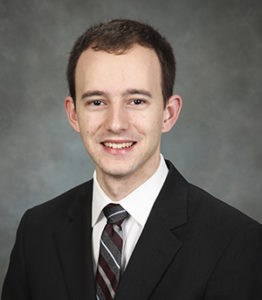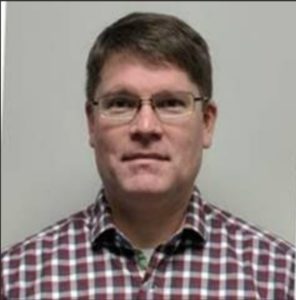Course Director: Thomas Overbye
Past Course Dates: March 4 – April 15, 2022
Description:
This course was conducted for SPP employees
Summary
High voltage electric grids are some of the world’s most complex machines, whose present high levels of reliability have been achieved through careful planning. The purpose of this 21-hourshort course is to provide coverage of many of the power system analysis techniques used during electric grid planning and operations. The course philosophy is to provide a practical, hands-on approach to describing these analysis techniques with abundant practical examples illustrating each stage in the process. Topics covered in the class include an introduction to interconnected electric grids, how they are modeled for power system analysis studies, power flow, sensitivity analysis, contingency analysis, economic electric grid operation, optimal power flow, electric grid markets, power system stability, and power system time-domain simulations. Throughout the course concepts will be illustrated using PowerWorld Simulator and PowerWorld DS with some hands-on exercises and take-home PowerWorld-based labs. Collectively the three course instructors have decades of experience in doing electric power system analysis, electric grid software development, and engineering education.
Who Should Attend
The course is designed to provide a comprehensive coverage of the fundamentals of the power system analysis for the planning and operation of large-scale, high voltage electric power systems. It is ideally suited for electric power engineers who have less than three years of experience in the electric utility industry. It is also suitable for engineers from other areas of the utility industry with more experience and for people with some technical background working in the policy and regulatory areas. The course will also be helpful for academics wishing to gain a practical understanding of the electric grid planning and operations.
Detailed Course Topics
| Week | Topics | Take Home Labs |
| 1 | Introduction to Power Systems, Review of Complex Power, Three-phase, Per Unit | No lab |
| 2 | Electric Grid Modeling of Transmission Lines, Transformers, Generators, Loads; the Bus Admittance Matrix | Power System Operations; Intro to PowerWorld |
| 3 | Power Flow | Power Flow, Small Medium Sized Grids |
| 4 | Power Flow Sensitivity, Large System Studies, Contingency Analysis | Power Flow, Large Grids |
| 5 | Economic Dispatch, Optimal Power Flow, Markets | Economic Dispatch and Contingency Analysis |
| 6 | Power System Stability | Optimal Power Flow (OPF) and Security Constrained OPF |
| 7 | Power Systems Operations and Emerging Topics Such as Geomagnetic Disturbance Analysis | Power System Stability, and Power System Dynamics with PowerWorld DS |
Credit: 21 PDHs/2.1 CEUs
Instructors
 Tom Overbye is professor and holder of the O’Donnell Foundation Chair III in the Department of Electrical and Computer Engineering at Texas A&M University (TAMU). He received his BS, MS, and Ph.D. degrees in Electrical Engineering from the University of Wisconsin-Madison. Before starting his academic career, he was employed with Madison Gas and Electric Company, working in their planning and operations departments. He is the original developer of PowerWorld Simulator (a widely used power system planning tool), a co-founder of PowerWorld Corporation, and an author of a widely used Power System Analysis and Design book. He is a recipient of the IEEE Power and Energy Society Outstanding Power Engineering Educator Award, is and IEEE Fellow, and is a member of the US National Academy of Engineering.
Tom Overbye is professor and holder of the O’Donnell Foundation Chair III in the Department of Electrical and Computer Engineering at Texas A&M University (TAMU). He received his BS, MS, and Ph.D. degrees in Electrical Engineering from the University of Wisconsin-Madison. Before starting his academic career, he was employed with Madison Gas and Electric Company, working in their planning and operations departments. He is the original developer of PowerWorld Simulator (a widely used power system planning tool), a co-founder of PowerWorld Corporation, and an author of a widely used Power System Analysis and Design book. He is a recipient of the IEEE Power and Energy Society Outstanding Power Engineering Educator Award, is and IEEE Fellow, and is a member of the US National Academy of Engineering.
 Adam Birchfield is an assistant professor in the Department of Electrical and Computer Engineering at Texas A&M University (TAMU). He received the B.E.E. degree in 2014 from Auburn University, the M.S. degree in electrical and computer engineering in 2016 from the University of Illinois at Urbana-Champaign, and the Ph. D. degree in 2018 in electrical engineering from Texas A&M University. His research is in the area of power system modeling and computational analysis, including dynamics and stability, synthetic power grids, visualization, and high-impact, low-frequency events. Prior to joining TAMU, he was with EPRI and also a consultant with Birchfield LLC.
Adam Birchfield is an assistant professor in the Department of Electrical and Computer Engineering at Texas A&M University (TAMU). He received the B.E.E. degree in 2014 from Auburn University, the M.S. degree in electrical and computer engineering in 2016 from the University of Illinois at Urbana-Champaign, and the Ph. D. degree in 2018 in electrical engineering from Texas A&M University. His research is in the area of power system modeling and computational analysis, including dynamics and stability, synthetic power grids, visualization, and high-impact, low-frequency events. Prior to joining TAMU, he was with EPRI and also a consultant with Birchfield LLC.
 Jamie Weber is the Director of Software Development at PowerWorld Corporation in Champaign, Illinois. He received a B.S. degree in electrical engineering from the University of Wisconsin-Platteville in 1995 and M.S. and Ph.D. degrees in electrical engineering from the University of Illinois at Urbana- Champaign, USA, in 1997 and 1999. James Weber has worked at PowerWorld Corporation since 1997 shortly after the company’s creation and has led the team of software developers since that time.
Jamie Weber is the Director of Software Development at PowerWorld Corporation in Champaign, Illinois. He received a B.S. degree in electrical engineering from the University of Wisconsin-Platteville in 1995 and M.S. and Ph.D. degrees in electrical engineering from the University of Illinois at Urbana- Champaign, USA, in 1997 and 1999. James Weber has worked at PowerWorld Corporation since 1997 shortly after the company’s creation and has led the team of software developers since that time.
List Cost
$1400 per student
